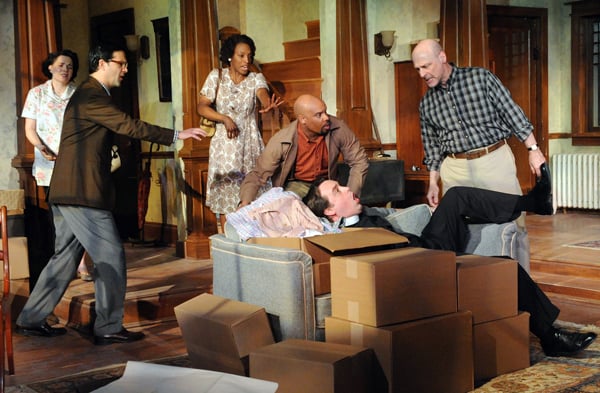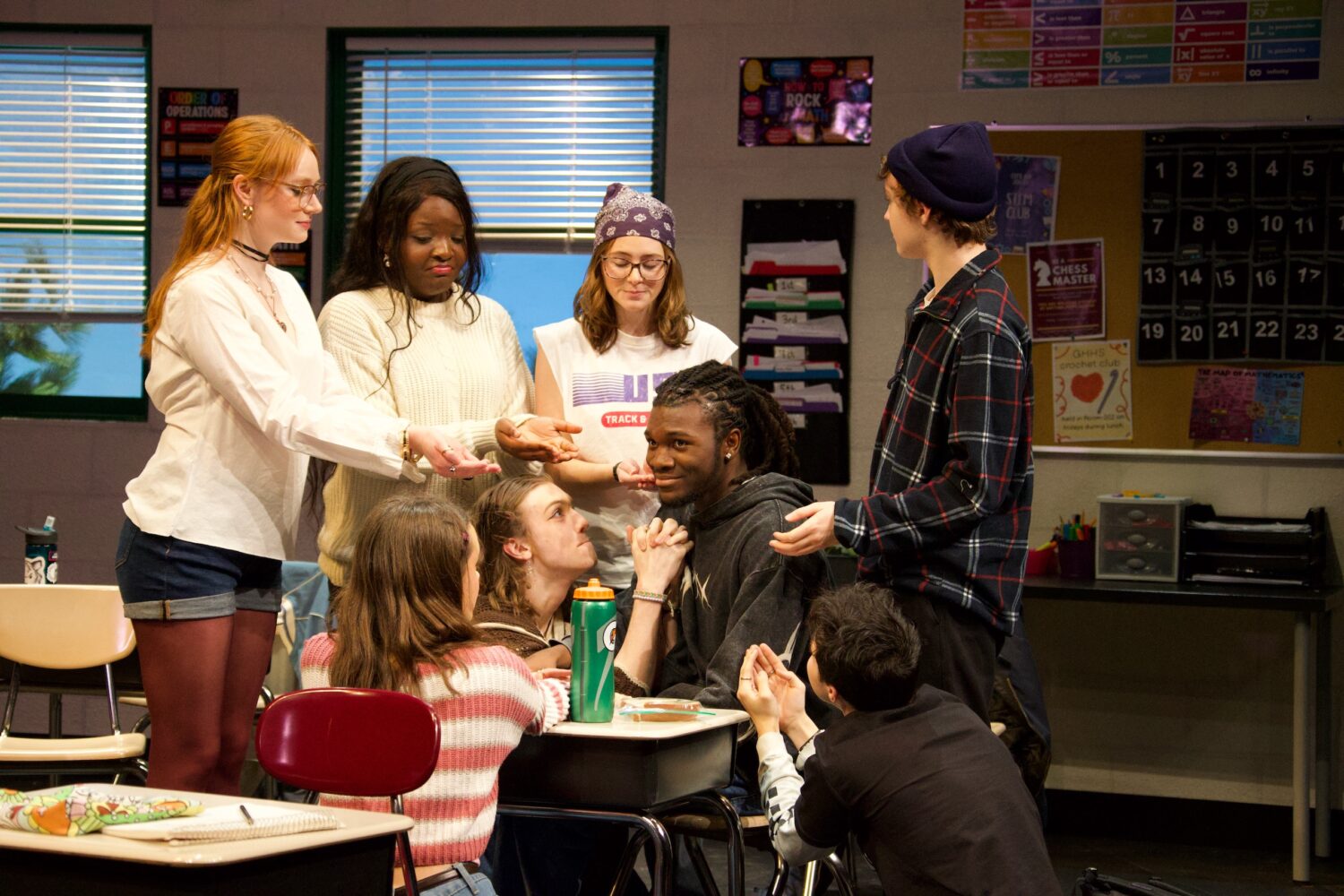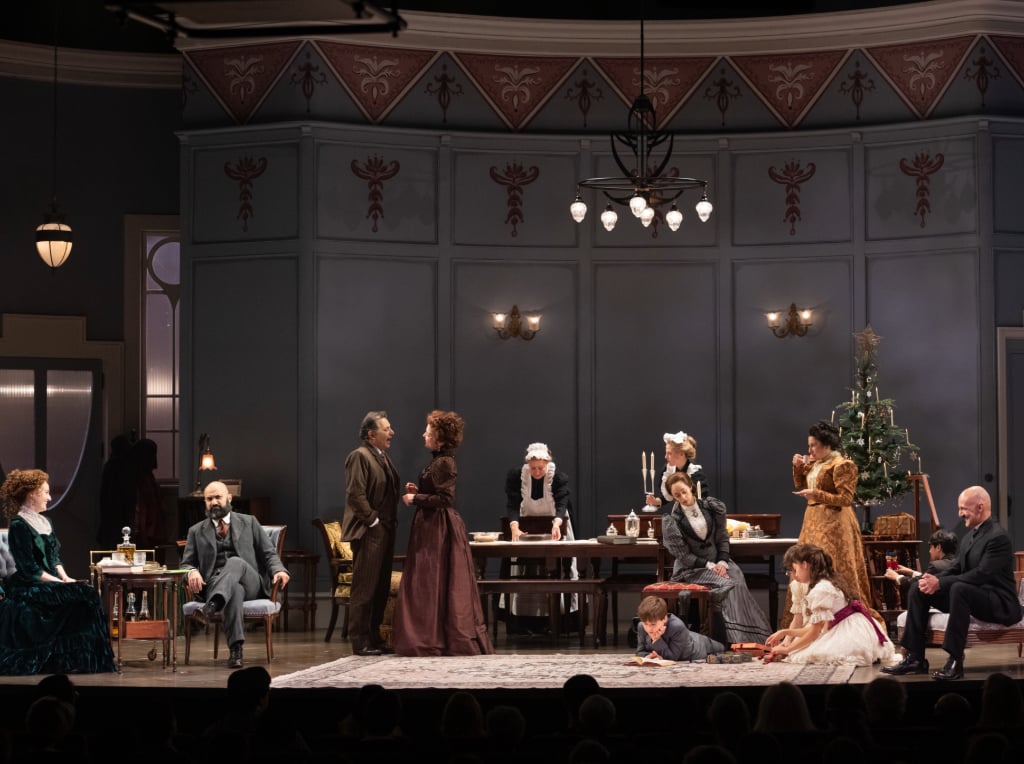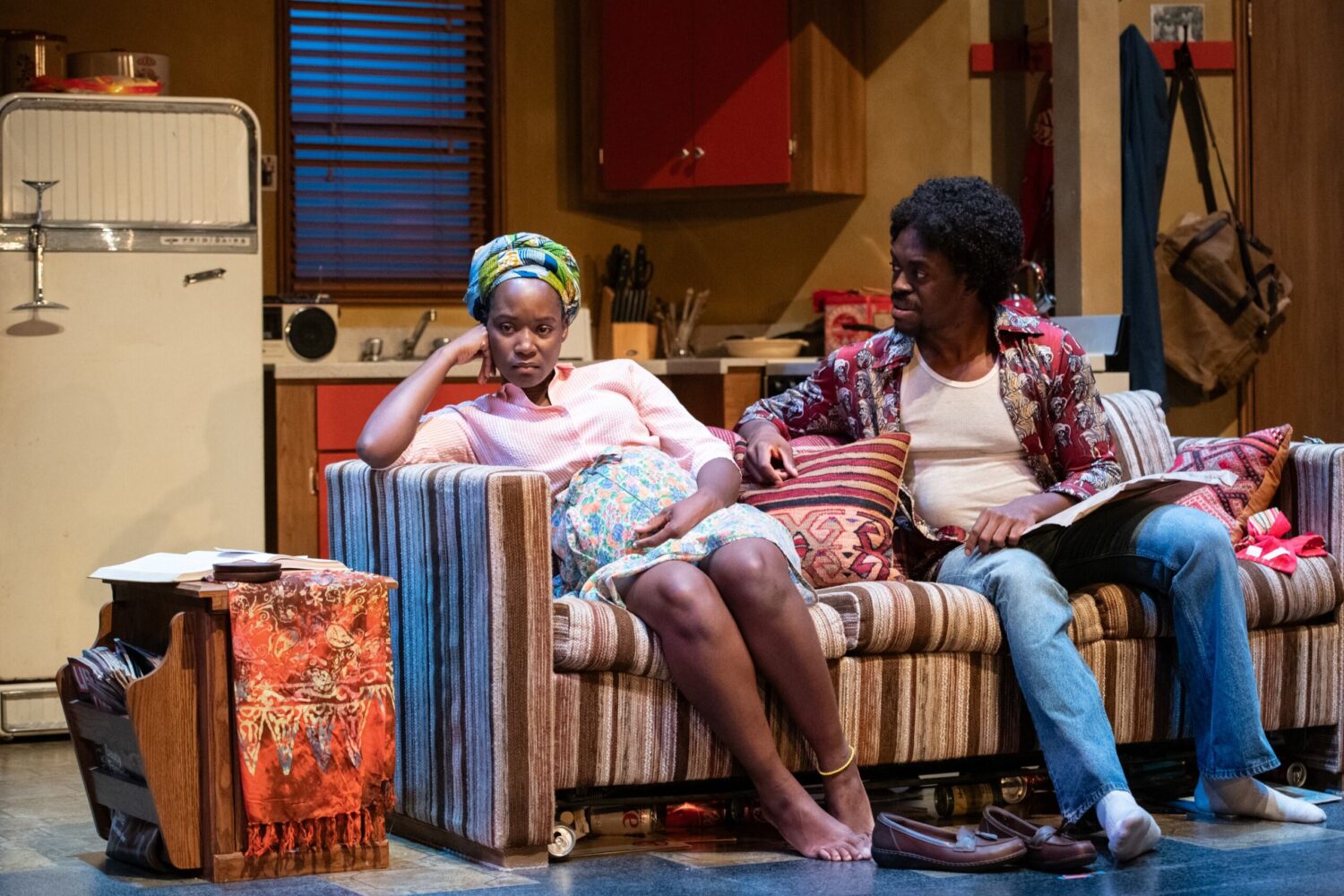Clybourne Park, now showing at Woolly Mammoth, tells the 50-year story of a white community's uproar when an African-American family moves into the neighborhood. Photograph by Stan Barouh
☆☆☆½ stars out of four
As uncomfortable as conflict can be in real life (particularly for socially awkward Brits like myself) it generally makes for theatrical dynamite when done correctly. Last season, Arena Stage’s production of Who’s Afraid of Virginia Woolf? was mesmerizing in the way it presented scenes of excruciating discomfort, and judging by the reviews, Woolly Mammoth’s Helen Hayes Award-winning production of Clybourne Park was similarly effective. I didn’t see the original run, so the current incarnation is my first experience of Bruce Norris’s pre and post-racial minefield, in which political correctness is exposed as a combination of guilt and resentment, and, to quote a song from Avenue Q, everyone’s a little bit racist.
Woolly made the wise decision to revive the Howard Shalwitz-directed play after it won Norris the Pulitzer Prize for drama earlier this year. And deservedly so, because it’s testament to his skills as a playwright that Clybourne Park—a play which largely ignores the meat in a theatrical sandwich and focuses instead on the two pieces of bread which enclose it—is so riveting. Fifty years pass between act one, which is set in a suburban house in 1959, and act two, set in the same house in 2009: 50 years in which many more dramatic events occur than the ones Norris details. And yet by choosing to examine what is essentially the beginning and the end of a story, he redefines the debate and closes in on what many more of us can identify with—the soft bigotry we come across every day, the well-meaning, thoughtless intentions which can be so offensive, and the eggshells which inevitably get trodden on every time the subject of race comes up.
Clybourne Park spins off of A Raisin in the Sun, Lorraine Hansberry’s groundbreaking 1959 play about an African-American family in Chicago who make the decision to buy a house in a white neighborhood. In the opening act, we’re introduced to the white family who are selling the house and moving on. Bev (Jennifer Mendenhall) is a bundle of nerves and wired energy, talking the ear off her husband, Russ (Mitchell Hébert in a powerful performance). Initially, the mundanity of the conversation offers a false sense of security, or even boredom, as the couple quibbles over geographical concepts and household chores. The couple’s black maid, Francine (Dawn Ursula) appears occasionally from the kitchen to assist with the packing. Russ picks a magazine from a large pile of National Geographics (a nod to the foreign terrain ahead, perhaps), and rejects the idea of getting dressed; it becomes obvious that both characters have suffered deeply from an unspoken tragedy.
Suddenly, the doorbell rings, and the uneasy peace Russ and Bev seem to have with each other is disturbed by a slew of visitors: Jim (Michael Glenn), a priest who stops by for no apparent reason and is rudely dismissed by Russ; Karl (Cody Nickell), a neighbor alarmed by the news that his new neighbors are black; Betsy (Kimberly Gilbert), his deaf wife; and Albert (Jefferson A. Russell), Francine’s husband, a composed, calm presence in the face of the neurotic characters he’s forced to interact with.
Karl, at first a seemingly innocent worrywart, shifts entirely in our perception when he raises his objections to the new family moving in. “The family could be perfectly lovely,” says Bev, to which he responds, “Well, that’s not the point, is it?” As he details the various differences between blacks and whites (black people don’t ski, they eat different food), Francine, who has been unwittingly dragged into the conflict, sits silently, stoic and graceful in her deep hurt.
The second act opens in the same house, now in a state of disrepair. The elegant wooden staircase, carved cornices, and tiles of James Kronzer’s set (a visually striking house) have been largely chipped away; the walls have holes in them, and the only furniture now is shabby and falling apart. Steve (Cody Nickell) and his wife, Lindsey (Kimberly Gilbert) are a white couple seeking to move into a now predominantly black neighborhood, meeting with residents who have some objections to their plans. As in the first half, an uneasy peace turns into what one character describes as a “predictable little euphemistic tap dance,” followed by a veritable nuclear holocaust of passive aggression (and a slew of racist jokes so uncomfortable you can hear the audience wincing).
Norris has a particular genius in making subtle comparisons: His equivocator in the first act is a priest, and a lawyer in the second. Gilbert plays a deaf woman in the first act and a profoundly over-sensitive one in the second (and both characters are pregnant), while cellphones serve the same punctuating, distracting purpose that doorbells do, five decades on. And Shalwitz succeeds in deftly orchestrating changes of pace, so the action is achingly slow one minute and hurtling along seconds later. His conclusion, framed by a plot point alluded to in the first act, is heartbreakingly quiet and reflective, even as it distracts from the main points of the debate. This is a show which tells us simultaneously how far we’ve come, and how we actually haven’t come far at all; how things have changed, and how they stay the same. But in dragging the subject out into the open, one hopes we might start crawling along a little faster.
Clybourne Park is at Woolly Mammoth through August 14; tickets ($30 to $65) available at Woolly Mammoth’s Web site.
Subscribe to Washingtonian
Follow Washingtonian on Twitter
Follow the After Hours Blog on Twitter
More>> After Hours Blog | Arts & Events | Happy Hour Finder | Calendar of Events

















